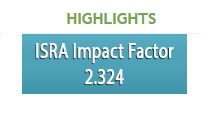
Jeffrey Beall, dessen Pauschalisierungen zu Predatory Open Access ich nicht teile und dessen Injurien gegen integre Open-Access-Journale mich oft stören, liefert in seinem Blog Scholarly Open Access immer wieder Hinweise auf Auswüchse im wissenschaftlichen Publikationswesen.

